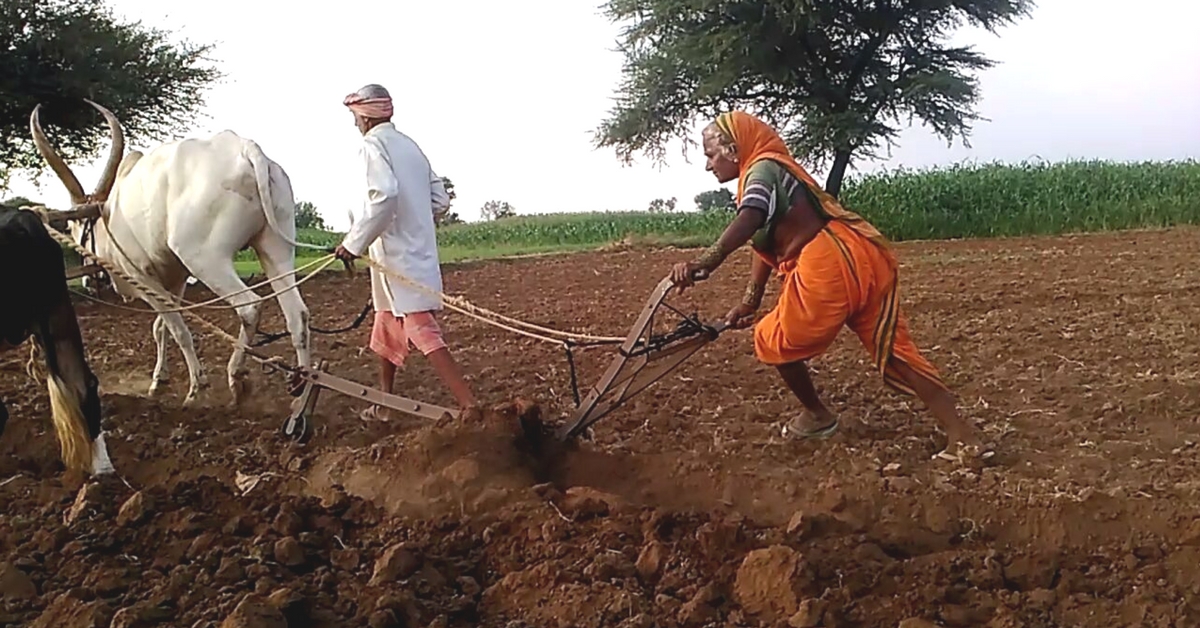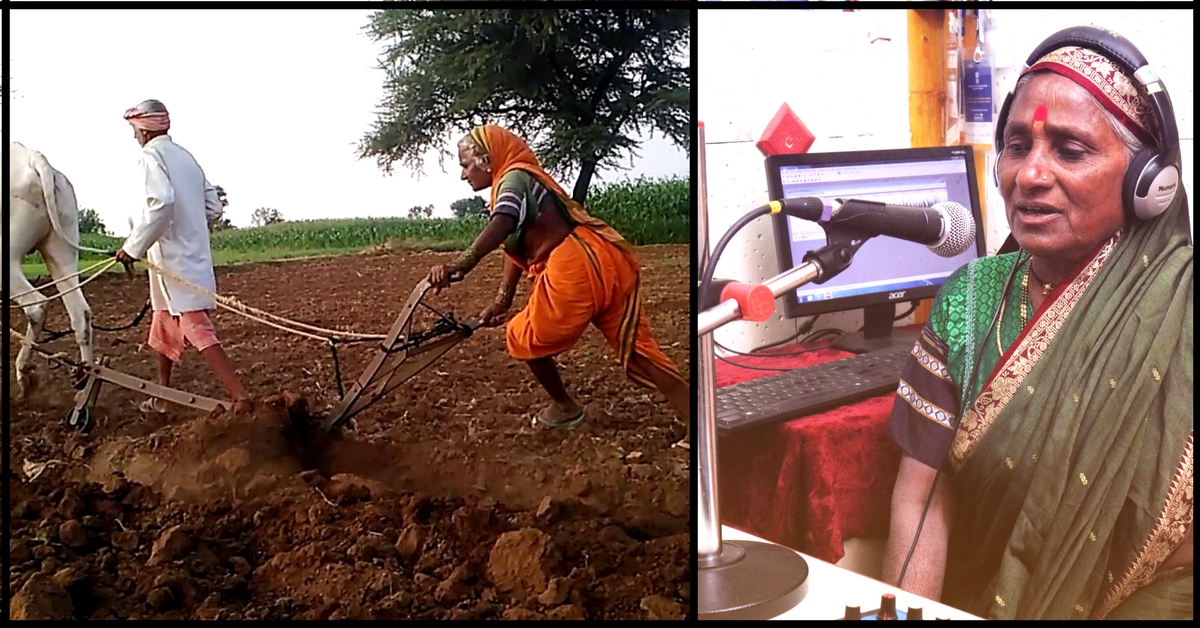Kerabai Sargar wakes up at the crack of dawn every day and begins her usual routine of having a bath, cooking and watering the Holy basil plant. She then walks up to her 6-acre farm where she works from dawn till dusk.
In fact, when I called her, she was right there on the farm, harvesting garlic. Her son held the phone for her while we chatted. In their farm, the Sargar family grows wheat, jowar, chillies, garlic and corn, and while farming keeps Kerabai’s days busy, it is singing that fills her heart with joy.
However, life has not been a perfect song for the family.
The 65-year-old owns about 12 acres of land, along with her husband. Six acres of this land is barren, which is a huge problem for them since they come from the drought-prone area of Mhaswad in Maharashtra.
“She and her husband lived nomadic lives as shepherds and were on the move from one place to another for eight months in a year.

Since they live in a drought-prone area, farming has been very challenging and has resulted in huge losses for the family. They survive on a day-to-day basis,” Swapnil Kulkarni told The Better India.
Swapnil works with the Mann Deshi Foundation, an organisation that works towards empowering women from impoverished areas.
It is through this foundation that Kerabai would find a way to voice her passion for singing.
Kerabai grew up listening to songs that her mother sang at home and in their field. All these songs are ingrained in Kerabai’s memory, and that is the only formal training she has had in singing.
One day, she was listening to Mann Deshi Radio—a community radio programme—at home, when suddenly a thought struck her! What if she approached the radio station, and offered to sing devotional songs on air?
Kerabai’s brainwave ended up wowing the programmers—they loved her devotional, traditional and inspirational songs!
Kerabai firmly believes that these songs play a significant role in ensuring the mental and psychological health of villagers.
“See, I go to the radio once in four days or so, sometimes every day of the week,” she tells me in Marathi. She calls the station, radio. “It takes me about Rs 10 by bus to reach the radio. There I work with a team of five-six other people who do the main work. I sing devotional and inspirational songs.”
Her son, Santosh Sargar prompts her whenever she feels shy, or forgets something. Singing for an audience of hundreds, and giving several media interviews has not taken away her innocence.
“I am very proud of my mother,” Santosh tells TBI. “We had never thought that she would get such a huge platform for her talents. Her lullabies to us, have become the voice of Mann Deshi Radio for hundreds of people!”
It is the Abhanga and Gawlani—ballads and odes—to historical figures that really get Kerabai going. Singing while working in fields, or to her children while they sleep is how she trained her voice. Today, her voice reaches all those rural sections that look up to these traditional ballads as a source of inspiration. They are the praises of wise and brave men who overcame difficult problems and made a mark in history.
You may also like: For Advice, Schemes & Tips: Kerala Farmers Now Get Their Own Radio Broadcast
These inspirational ballads are what the farmers hope to get them through tough times of droughts and poverty.
If you ask Kerabai what her dream is, she will promptly reply, “I am very keen that somebody who knows to write, can write all the songs which I sing and I want to publish my book. I also want to record a CD and start my own classes to teach members of the younger generation, who are interested in learning and preserving this immense wealth of culture and keep the legacy going.”
(Edited by Gayatri Mishra)
Like this story? Or have something to share?
Write to us: contact@thebetterindia.com
Connect with us on Facebook and Twitter.
NEW: Click here to get positive news on WhatsApp!
If you found our stories insightful, informative, or even just enjoyable, we invite you to consider making a voluntary payment to support the work we do at The Better India. Your contribution helps us continue producing quality content that educates, inspires, and drives positive change.
Choose one of the payment options below for your contribution-
By paying for the stories you value, you directly contribute to sustaining our efforts focused on making a difference in the world. Together, let's ensure that impactful stories continue to be told and shared, enriching lives and communities alike.
Thank you for your support. Here are some frequently asked questions you might find helpful to know why you are contributing?

